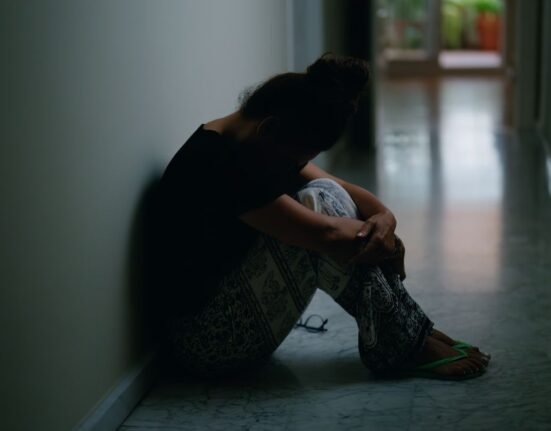In the latest season of a popular web series Mismatched, A character named Dimple creates a grief app that allows users to interact with digital simulations of deceased loved ones. This mimicry of the deceased using voice messages and chats seeks to offer solace to the griever. While this intention may seem compassionate, it also raises great issues, as that simulation could disturb the process of natural grieving and emotional healing.
Read More: Understanding Primal Therapy: A Clear Path to Emotional Healing
Why the App Could Be Unhealthy for Grief Processing
1. Inhibition of Acceptance
Grief heals when loss is accepted. An app that simulates interactions with the deceased can hamper this process because it prevents emotional closure by keeping the user emotionally attached to a fictitious representation of their loved one. Recognizing the finality of the loss is a necessary part of true acceptance, which can be challenging when one is constantly exposed to a digital image of the deceased.
2. Avoidance of Reality
Grief involves mostly head-on confrontation of painful memories. When a person engages with a stimulating voice or message designed to mimic the deceased person, it can become avoidance for the person suffering, a delay of the necessary emotional process, and prolonged denial. This type of technology can create a false sense of closeness, which can prevent individuals from moving forward in life with acceptance of truth in their emotional healing journey.
3. Complicated Grief
An app can also lead to complicated grief with time, wherein the whole process is prolonged and severely interferes with everyday activities. The individual suffers from this condition in different ways, such as intense yearning or emotional numbness, or will have difficulty getting back into life. All this leaves them without reintegrating into normal living and using the app in times when it is a constant emotional trigger instead of a healing tool.
4. Emotional Dependence
The app might make people unduly emotionally dependent on the virtual world and remain isolated from other human support structures, such as friends, family, or professional counselling. This dependency may inhibit growth in emotional ways fostering emotional distance and preventing individuals from forming meaningful connections with those still present in their lives.
5. Ethical Concerns
Recreating a deceased individual digitally raises moral questions about consent and the psychological effects of digitally preserving someone without their voice in the process. There could also be unresolved legal issues regarding property concerning a person’s likeness and voice after death.
6. Risk of Distorted Memory
There would be a distortion of real memories because persons may tend to idealize or misremember their beloved ones while using the imitation version of the deceased to assist in the grieving process. This digital representation could over time replace true memories and change the way the person recalls their relation with the deceased.
7. Potential Commercial Exploitation
Grief applications might sell vulnerable people with the profit possible from emotional distress. A subscription model, or in-app purchases for additional interactivity, might tempt a bereaved individual into further prolonging use and profit instead of worrying about well-being.
8. Psychological Impact on Children and Adolescents
Youngsters, to a large extent, cannot distinguish between a real and a virtual presence. This often brings havoc to the emotional lives of the individuals. Youngsters are cognitively still developing the ability to process the experience of death and loss, and this makes them vulnerable to longer periods of denial or misguided understandings of death.
Read More: The Acceptance Stage of Grief
Understanding Grief and Its Stages
Grief is a natural response to loss, and psychologist Elisabeth Kübler-Ross identified five stages of grief, though they are not always experienced linearly:
- Denial: Shock and disbelief, struggling to accept the reality of the loss. This stage serves as a temporary defence mechanism to buffer the initial impact.
- Anger: Frustration and questioning the fairness of the loss. People may direct their anger toward themselves, the deceased, or external circumstances.
- Bargaining: Thoughts of “What if I had done something differently?” or making hypothetical deals to reverse the loss.
- Depression: Deep sadness, withdrawal, and emotional heaviness. This stage often involves intense sorrow as the reality of the loss sets in.
- Acceptance: Coming to terms with the loss and beginning to find ways to move forward. Acceptance doesn’t mean forgetting but rather learning to live with the loss.
Read More: Understanding Grief: Navigating the Complex Emotions, Cognitions, and Behaviors
What Stage Is Dimple Stuck In?
Dimple appears to be struggling with denial. She creates an app to replicate her interactions with the dead, thus not confronting the loss completely. It means that she does not want emotionally to let go, which is characteristic of the denial phase in which the individual struggles to accept the finality of death. Her continued interaction with the digital representation of the loved one could also be understood as a form of continuous bargaining: she attempts to hold on to the relationship instead of accepting the permanence of loss.
Although she portrays the app in the web series as her comfort or coping mechanism, it might not be the same for others. Every individual copes with similar situations differently, for one it might be a coping mechanism but for others, it might become a defence mechanism and maybe something that puts the user in more severe denial and the individual might end up suffering from long-term mental health risks.
Read More: Losing a Soulmate: A Journey of Grief, Loss and Keeping Hope
Psychological Impact of Unresolved Grief
Unresolved grief can manifest in various harmful ways, such as:
- Physical Symptoms: Fatigue, headaches, and weakened immunity.
- Emotional Instability: Persistent sadness, mood swings, and anxiety.
- Relationship Struggles: Withdrawal from loved ones and social isolation.
- Cognitive Disruption: Difficulty concentrating, forgetfulness, and intrusive thoughts about the deceased.
- Long-term Mental Health Risks: If left unaddressed, unresolved grief can lead to more serious conditions such as depression, anxiety disorders, and post-traumatic stress disorder (PTSD).
Read More: Coping with Grief and Loss: A Guide for Young Adults
Healthy Coping Mechanisms for Grief
To cope with grief in a healthier way, individuals can consider:
- Expressing Emotions: Journaling, art, or therapy can help release and process suppressed feelings.
- Mindfulness Practices: Activities like meditation and deep breathing can help you stay grounded in the present.
- Seeking Support: Engaging with friends, family, and support groups can provide comfort and shared experiences.
- Professional Help: Therapy, especially grief counselling, can assist when the grief feels overwhelming and persistent.
- Establishing Routines: Maintaining daily habits to regain a sense of normalcy can provide structure during emotional turmoil.
- Limiting Digital Dependence: Reducing screen time and avoiding digital simulations can help individuals focus on healthy emotional expression.
- Commemorative Rituals: Engaging in positive remembrance activities, such as planting a tree, creating a scrapbook, or participating in charitable activities in memory of the loved one, can promote healing.
How Media and Technology Can Influence Grief
Today, modern technology is accompanied by grief apps just like the one in Mismatched that seems to have affected how individuals mourn their dead. Digital memorials and support forums prove to be good socialization forums; however, they have also been known to keep people with memories alive when used in the wrong manner. Shows like Mismatched encourage much-needed conversations regarding the judicious use of technology in an emotionally healthy manner.
Read More: What happens when grief is not accepted: Disfranchised grief
Final Thoughts
While Dimple’s grief app was created with empathy, it highlights the complexities of coping with loss. Dimple in the series is tech-savvy and her love for tech has always been a form of coping mechanism for her, so she found that app to be helpful but in other cases, such apps might backfire. Every individual has a survival instinct, as a human being we need to understand our personal needs to deal with situations like such.
True healing involves facing grief, not avoiding it. While technology can offer comfort, it should never replace authentic emotional processing. Embracing healthier coping mechanisms, seeking professional support, and understanding the stages of grief can help individuals process their emotions compassionately and constructively, ultimately moving toward acceptance and healing.













Leave feedback about this